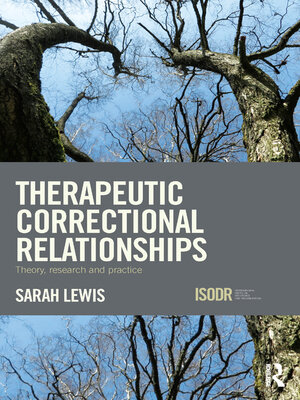Therapeutic Correctional Relationships
ebook ∣ Theory, research and practice · International Series on Desistance and Rehabilitation
By Sarah Lewis

Sign up to save your library
With an OverDrive account, you can save your favorite libraries for at-a-glance information about availability. Find out more about OverDrive accounts.
Find this title in Libby, the library reading app by OverDrive.



Search for a digital library with this title
Title found at these libraries:
| Library Name | Distance |
|---|---|
| Loading... |
The relationship between offender and criminal justice practitioner has shifted throughout rehabilitative history, whether situated within psychological interventions, prison or probation. This relationship has evolved and adapted over time, but interpersonal processes remain central to offender work. However, little work has critically focused upon the challenging task of developing and sustaining positive relationships with offenders.
This book addresses this gap, providing an in-depth exploration of the processes which underpin correctional relationships within probation. Through an innovative methodology, it examines how practitioners can enhance their practice by understanding how relationships form, deepen and end effectively. For the first time, it draws on the experiences of offenders and practitioners to uncover the darker side to relationships, identifying how they can rupture and break down. From this exploration, it presents alternative ways in which relationships can be repaired and safeguarded within correctional practice. In essence, this book assists practitioners in becoming successful supporters of change.
In an increasingly competitive and politicised climate, this book outlines how political and organisational tensions can impact upon the flow of relationships across the criminal justice system. Uniquely, this book examines how these tensions can be overcome to produce transformative changes. Lewis suggests that therapeutic correctional relationships can thrive within a number of correctional settings and presents the core principles of relational practice and dynamic model of therapeutic correctional relationships to assist in achieving quality and sustainable practice. This book will appeal to criminological and psychological scholars as well as students studying probation and prison practice, offender rehabilitation and desistance.







